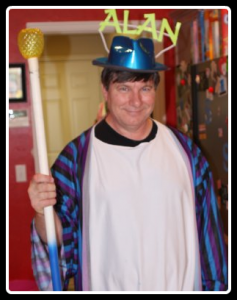 It’s time for another post about my dad. Before we dive in, let’s have a brief review:
It’s time for another post about my dad. Before we dive in, let’s have a brief review:
- He’s an accomplished debater, and wins every fight with sheer Dadness
- He’s always been a natural storyteller
- He spent a long time wanting to write a book, and I spent a long time telling him he should
Today’s post isn’t about debate at all, but his novel was, and the fact that he ever wrote a novel emerged directly from the second and third points. I understand why he was hesitant — writing a book is a huge endeavor — but he’s a born storyteller so how could he fail to write a great book?
That was my thinking when I bullied him into doing NaNoWriMo. He succeeded, as I already said, and when he finished the month with a fresh-written rough draft, he did the natural and obvious thing: he gave it to me to review.
And, of course, I immediately started worrying. How could I possibly criticize his book after I was the one who’d made him write it? Before I ever glanced at the first page, I started giving him my disclaimers — every first draft needs work, every first novel has some weaknesses, and my style isn’t his style.
I belabored the points, trying to make it clear that he should expect lots of critique from me, but it certainly wasn’t a criticism of his writing ability. He assured me (time and again), that he’s a grown man, and he could take it.
So, finally, I started reading it…and I was amazed. There were problems — some of the same unforgivable sins I was talking about last month — but the story overwhelmed me. The characters were rich, their problems engaging, and the plot moved exactly where it needed to. In short…it was a fantastic first novel.
I wasn’t so greedy as to keep that information to myself, of course. I put praise in my feedback right along with notes of typos and the sort of writing advice that would ultimately grow into blog posts here at Unstressed Syllables. And I tried to be just as detailed in my praise as I was in my criticism, telling him why his good characterization was good, and how the effective scenes achieved their effects.
A lot of the value in that came from some basic audience analysis. I read his book as an interested reader, but whenever I stopped to give feedback, I spent some time considering things from my dad’s point of view as a writer. If he had a misstep inspired by too much time watching movies, I could figure that out and use it to clarify not only what he was doing, but also why.
When it came to the praise, though, I found myself going back to the same source again and again. Virtually everything he did right, he did because he reads. Voraciously.
Every Page Counts
Dad’s a great storyteller. I’d never deny it. But his magic with spoken story comes from subtle use of voice and pacing and an understanding of nonverbal communication theory — stuff that’s completely lost on the page (or achieved in a very different manner). No, most of his skill as a writer comes from the sheer number of pages he’s read in his lifetime (and he’s read a lot).
If you’re a writer, you should be reading too. You probably already are, so I won’t bother trying too hard to sell the recommendation, but I can tell you some of the best things I’ve gotten out of my reading, and how to read as a writer (instead of just reading as a reader). Come back tomorrow, and I’ll dive right in.
Photo Courtesy Shannon Iverson.





